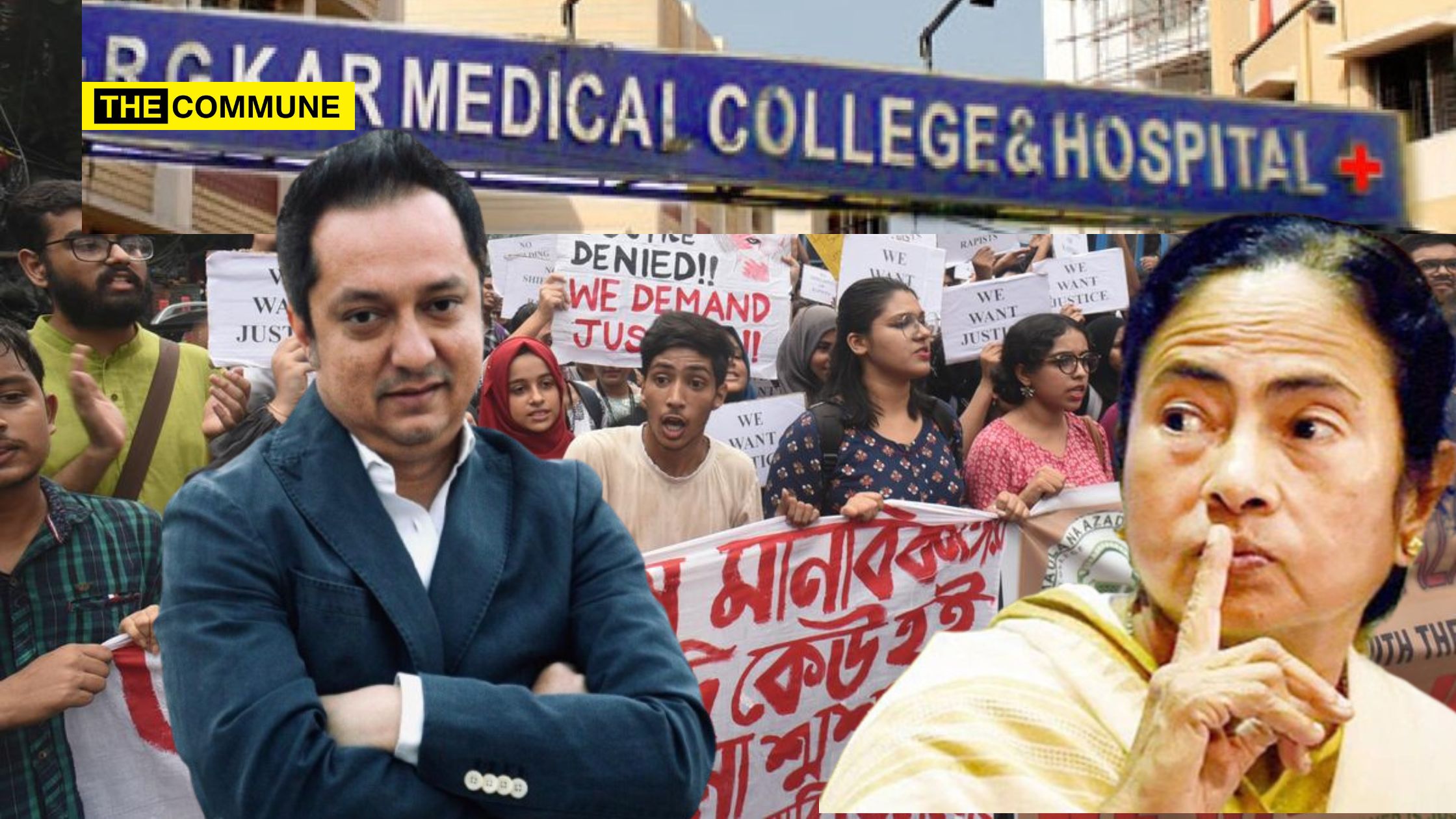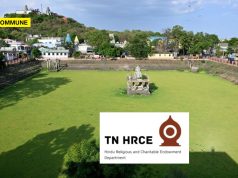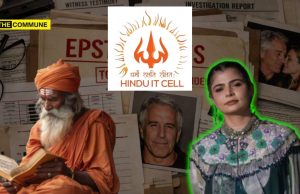
In a shocking development from West Bengal, the police have allegedly targeted and blocked the mobile number of journalist Abhijit Majumder in an apparent effort to stifle criticism of the ruling Mamata Banerjee’s TMC government. Majumder, known for his outspoken commentary, has been vocal about the state’s handling of the brutal rape and murder of a doctor at RG Kar Medical College in Kolkata.
This incident is part of a broader pattern of repressive measures by the West Bengal government, which has included filing numerous cases against citizens protesting for justice, deploying water cannons against peaceful demonstrators, and transferring faculty members from the college.
Abhijit Majumder Questions Legality Of Number Blocking
Abhijit Majumder, a journalist and a frequent contributor to various media outlets, has been particularly critical of the Mamata Banerjee government. His sharp social media commentary and his questioning of the administration on issues like post-poll violence, the Sandeshkhali incident, and the recent doctor’s rape and murder have drawn attention.
On 30 August 2024, Majumder remarked on X that the TMC-led state government blocked his phone number. He stated, “My phone has been blocked. Called Airtel. It has been blocked by apparently cyber police, West Bengal. How is this even legal?”
My phone has been blocked.
Called Airtel.
It has been blocked by apparently cyber police, West Bengal.
How is this even legal?— Abhijit Majumder (@abhijitmajumder) August 30, 2024
Airtel Confirms Blocking
The journalist substantiated his claim against the West Bengal government by sharing an audio clip of his conversation with an Airtel customer service representative. In the recorded call, the customer service executive explained that his phone number was blocked due to a complaint filed by the state police, not Airtel. The police flagged it for association with fraudulent activities.
Despite Majumder’s repeated inquiries about how a state government could impose such a measure without central oversight, the executive maintained that it was beyond Airtel’s control.
Abhijit Majumder shared the clip in his X account and said,“So, the police of #MamataBanerjee have blocked my phone number. I was talking too much about #KolkataDoctorDeath. They think they will silence me 🙂 Called Airtel, this is what they said.”
So, the police of #MamataBanerjee have blocked my phone number.
I was talking too much about #KolkataDoctorDeath.
They think they will silence me 🙂
Called Airtel, this is what they said 👇🏼 pic.twitter.com/8juvpZb75h— Abhijit Majumder (@abhijitmajumder) August 30, 2024
This incident is part of a broader crackdown that began on August 15, when the Kolkata Police intensified their efforts against individuals discussing the brutal rape and murder of a trainee doctor at RG Kar Medical College. To combat what they term “misinformation,” the police have filed 10 FIRs, initiated cases against 35 people, and issued notices to over 300 others. The charges include criminal conspiracy, violations of the IT Act, and other cognizable offences. Those targeted include journalists, politicians, doctors, and social media users accused of spreading false information, misleading videos, and voice notes.
Among those affected is author and activist Shefali Vaidya, who received a notice for criticizing the police’s inaction and the perceived lawlessness under the ruling Trinamool Congress (TMC) government.
Request – Please read through and RT for you agree.
So I got this threatening letter from @KolkataPolice for merely asking a few questions and for exercising my right of free speech.
This is a clear case of @MamataOfficial administration silencing the voice of private citizens… pic.twitter.com/SiM6fTORFa
— Shefali Vaidya. 🇮🇳 (@ShefVaidya) August 16, 2024
What happened in Kolkata
On 9 August 2024, the lifeless and partially unclothed body of a female medical intern was discovered in the lecture hall of RG Kar Medical College and Hospital, a government-operated institution in Kolkata. Her father alleged that she had been sexually assaulted and murdered in the hospital. He said there were attempts to hide the truth.
On the night of the incident, the doctor had a late-night meal with four colleagues at 2:30 am after watching Neeraj Chopra’s javelin throw event at the Paris Olympics. Subsequently, she went to the lecture hall to unwind.
The primary suspect, Sanjay Roy, had unrestricted access to all hospital sections since working at the police outpost. Though he was not associated with the institution, he frequented the premises. Surveillance footage captured his entry into the area where the doctor’s body was found, leading to his arrest on the 10th of August. After the dreadful deed, Roy returned home and slept in. He also cleaned his clothes to eliminate any evidence, with the police discovering his bloodstained shoes during a search.
Post-Mortem Report
The post-mortem report revealed that the doctor had been subjected to brutal torture before being asphyxiated. The report, spanning four pages, indicated that she was strangled, resulting in severe injuries in her private regions.
Moreover, the doctor’s thyroid cartilage was fractured. Sources indicated that the assault occurred, along with the rape, most likely between 3 and 5 am on 9 August 2024. Her lips, fingers, left leg, and abdomen bore marks of injuries. It was reported that the doctor’s head was slammed against a wall or floor, causing extensive injuries, and her airflow was obstructed by closing her mouth and nose to prevent vocalization.
Allegations were made that the accused physically assaulted her when she resisted. Subsequently, he carried out the assault, leading to her demise. As per the autopsy findings, the doctor had cuts on her hands and face. The impact of a severe blow caused the fragments of her broken spectacles to enter her eyes. The initial post-mortem report ruled out suicide, confirming that the trainee doctor was sexually violated before being killed.
Calcutta HC criticises WB Govt
On the 13th of August, the Calcutta High Court criticized the West Bengal government for trying to shield the Hospital’s principal. On the same day, the National Human Rights Commission (NHRC) took suo motu cognizance of the doctor’s rape and murder.
NHRC issued directives to the director general of police (DGP) and chief secretary of West Bengal, seeking a comprehensive report within a fortnight. It said the report should detail the progress of the police probe, actions against the perpetrators, specifics of compensation, and steps implemented to prevent similar occurrences.
(With Inputs From Organiser)
Subscribe to our channels on Telegram and WhatsApp and get the best stories of the day delivered to you personally.




